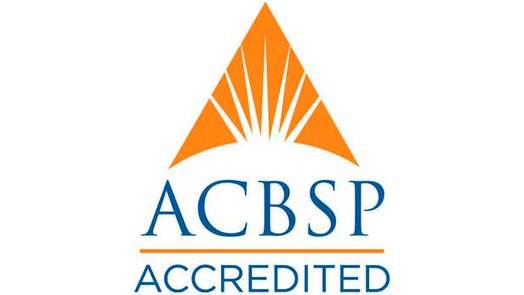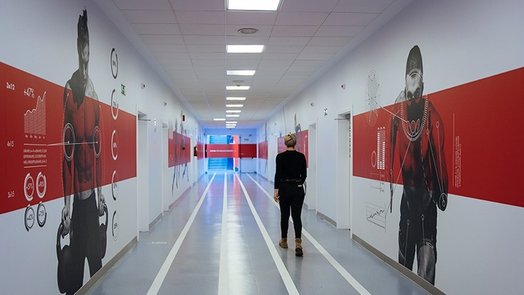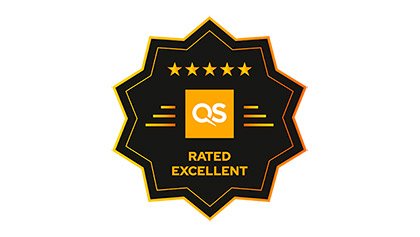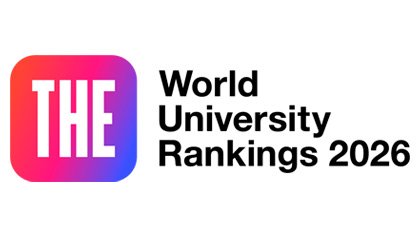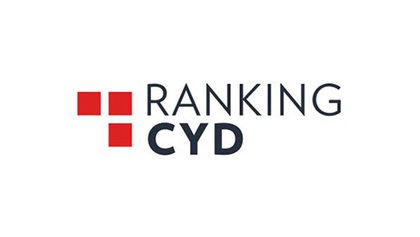-50% Discount on place reservation for 26/27 intake until February 28th!
Business and International Relations: Study exchanges in USA, Europe or Asia
The Double Degree in International Relations and Business is a five-year programme designed to equip you with the skills to be able to lead business organisations or have a successful career in politics – on diplomatic missions or national or global institutions. The business and international relations degree, taught entirely in English and made up of 360 ECTS, has a practical approach that we see you complete work placements and internships, as well as take part on international study exchanges in the USA, Europe or Asia.
Official degree issued by Universidad Europea de Madrid
| Campus-based | Classes in English | Villaviciosa de Odón | 5 Years, 360 ECTS | Start: 14 sep. 2026 | Faculty of Economics, Business and Communication Sciences |
A study plan designed to give you understanding of business and international relations
You will study an ambitious program to become a global professional capable of holding a business position in any country and under any socioeconomic environment. You will gain a work profile with a great capacity for management and leadership, an integral vision of the company and an international perspective. You will be immersed in a professional reality from day one: a CV designed with company collaboration; a faculty made up of professors in who work in banking, business or international trade and compulsory internships that allow you to live and learn about the profession.
Study plan structure
PRIMER CURSO
| Materia | ECTS | Tipo | Idioma de impartición |
|---|---|---|---|
| Economic Environment | 6 | OBLIGATORIA | Inglés (en) |
| Fundamentals of International Business | 6 | OBLIGATORIA | Inglés (en) |
| Communication Skills | 6 | OBLIGATORIA | Inglés (en) |
| Mathematics | 6 | OBLIGATORIA | Inglés (en) |
| Environments: Cultural, Political and Legal | 6 | OBLIGATORIA | Inglés (en) |
| Geopolitics of Today’S World | 6 | OBLIGATORIA | Inglés (en) |
| Principles of Business Management | 6 | OBLIGATORIA | Inglés (en) |
| Financial Accounting Analysis | 6 | OBLIGATORIA | Inglés (en) |
| Introduction To Marketing | 6 | OBLIGATORIA | Inglés (en) |
| Foreign Language Level I (German) | 6 | OBLIGATORIA | Alemán (de) |
| Foreign Language Level I (Spanish) | 6 | OBLIGATORIA | Español (es) |
| Foreign Language Level I (French) | 6 | OBLIGATORIA | Francés (fr) |
| History and Theory of International Relations | 6 | OBLIGATORIA | Inglés (en) |
| Human Rights and Development Cooperation | 6 | OBLIGATORIA | Inglés (en) |
SEGUNDO CURSO
| Materia | ECTS | Tipo | Idioma de impartición |
|---|---|---|---|
| Competitive Market Analysis | 6 | OBLIGATORIA | Inglés (en) |
| International Financial Accounting | 6 | OBLIGATORIA | Inglés (en) |
| Financial Economics | 6 | OBLIGATORIA | Inglés (en) |
| International Marketing | 6 | OBLIGATORIA | Inglés (en) |
| World Economics | 6 | OBLIGATORIA | Inglés (en) |
| Statistics | 6 | OBLIGATORIA | Inglés (en) |
| International Taxation | 6 | OBLIGATORIA | Inglés (en) |
| Sources of International Financing | 6 | OBLIGATORIA | Inglés (en) |
| Business Intelligence | 6 | OBLIGATORIA | Inglés (en) |
| Foreign Language Level II (German) | 6 | OBLIGATORIA | Alemán (de) |
| Foreign Language Level II (Spanish) | 6 | OBLIGATORIA | Español (es) |
| Foreign Language Level II (French) | 6 | OBLIGATORIA | Francés (fr) |
| Concepts of International Relations: Actors and Factors | 6 | OBLIGATORIA | Inglés (en) |
| Human, Economic, and Political Geography | 6 | OBLIGATORIA | Inglés (en) |
TERCER CURSO
| Materia | ECTS | Tipo | Idioma de impartición |
|---|---|---|---|
| International Strategic Management | 6 | OBLIGATORIA | Inglés (en) |
| Human Resources Management | 6 | OBLIGATORIA | Inglés (en) |
| Managerial and Negotiation Skills | 6 | OBLIGATORIA | Inglés (en) |
| Commercial Research | 6 | OBLIGATORIA | Inglés (en) |
| International Trade | 6 | OBLIGATORIA | Inglés (en) |
| Law and International Contracts | 6 | OBLIGATORIA | Inglés (en) |
| International Finance | 6 | OBLIGATORIA | Inglés (en) |
| Internationalization Strategies | 6 | OBLIGATORIA | Inglés (en) |
| International Production and Operations Management | 6 | OBLIGATORIA | Inglés (en) |
| Foreign Language Level III (German) | 6 | OBLIGATORIA | Alemán (de) |
| Foreign Language Level III (Spanish) | 6 | OBLIGATORIA | Español (es) |
| Foreign Language Level III (French) | 6 | OBLIGATORIA | Francés (fr) |
| Documenting Sources | 6 | OBLIGATORIA | Inglés (en) |
| Current-Day Observations | 6 | OBLIGATORIA | Inglés (en) |
CUARTO CURSO
| Materia | ECTS | Tipo | Idioma de impartición |
|---|---|---|---|
| Logistical Distribution | 6 | OBLIGATORIA | Inglés (en) |
| Ethics in International Business | 6 | OBLIGATORIA | Inglés (en) |
| Project Management | 6 | OBLIGATORIA | Inglés (en) |
| Internship I | 6 | OBLIGATORIA | Inglés (en) |
| Internship II | 6 | OBLIGATORIA | Inglés (en) |
| Graduation Project | 6 | OBLIGATORIA | Inglés (en) |
| University Activities | 6 | OBLIGATORIA | Inglés (en) |
| International Business and Diplomacy | 6 | OBLIGATORIA | Inglés (en) |
| Emerging Powers and Markets | 6 | OBLIGATORIA | Inglés (en) |
| Environmental Impact Assessment | 6 | OBLIGATORIA | Inglés (en) |
| Theory of State and Comparative Political Systems | 6 | OBLIGATORIA | Inglés (en) |
| Comparative Legal Systems | 6 | OBLIGATORIA | Inglés (en) |
QUINTO CURSO
| Materia | ECTS | Tipo | Idioma de impartición |
|---|---|---|---|
| Cultural Differences and Interculturality | 6 | OBLIGATORIA | Inglés (en) |
| Spain’s Foreign Policy | 6 | OBLIGATORIA | Inglés (en) |
| Public International Law | 6 | OBLIGATORIA | Inglés (en) |
| The United Nations | 6 | OBLIGATORIA | Inglés (en) |
| Theory and Analysis of International Conflicts | 6 | OBLIGATORIA | Inglés (en) |
| Defense and Security Alliances | 6 | OBLIGATORIA | Inglés (en) |
| Image Abroad and Public Diplomacy | 6 | OBLIGATORIA | Inglés (en) |
| Diplomatic and Consular Law | 6 | OBLIGATORIA | Inglés (en) |
| Pressure Groups | 6 | OBLIGATORIA | Inglés (en) |
| International Conflicts of Laws | 6 | OBLIGATORIA | Inglés (en) |
| International Terrorism and Organised Crime | 6 | OBLIGATORIA | Inglés (en) |
| International Relations Graduation Project | 6 | OBLIGATORIA | Inglés (en) |
Academic calendar
View here
Internships
Internships are a key component of your training. Acquiring experience after what you have learnt in your degree is the best way to enter the employment market. There are two types of internships: curricular—which are included in your study plan—and extracurricular—which you can do on a voluntary basis.
In order to complete curricular internships in companies, you will need to have 50% of the credits approved and to register the subject before starting your internship. These internships are monitored by the company and the internship coordinator, and interim and final reports are prepared for evaluation.
If you want to take your work experience to the next level before finishing your university education, you can pursue an extra-curricular internship. You can do them in any academic year, but keep in mind that internships are a formative complement to your studies; therefore, the more knowledge you have acquired throughout your studies, the more you will benefit from the internship experience.
Collaborators
Universidad Europea has signed over 3,000 agreements with different institutions, companies or financial institutions, such as Banco Santander, Deloitte, Adidas, Telefónica, Grupo Día, Accenture, Phillips Ibérica, Microsoft, PWC, Salesforce, etc.
Universidad Europea has 253 agreements for study abroad exchanges which sometimes allow for international internships, such as with the University of Berkeley or McGill.
Additionally, it is worth noting the professional projection of these students in international organizations which continuously require students from this discipline, such as:
- World Bank
- International Monetary Fund
- European Central Bank
International business and relations degree career opportunities
A cutting-edge syllabus focused on the market, an experiential academic model, an international outlook and compulsory internships make up the core of the degree, increasing your employability and entrepreneurial capacity and making it easier for you to access the national and international job market. As a Graduate in International Business and International Relations, you will be highly skilled with an international projection, fully capacitated for the international management of a company. You will acquire the knowledge, techniques, skills and conduct needed in international business culture. This is a culture that demands professionals with multidisciplinary knowledge, solid management and business techniques, economic and language skills, geopolitical knowledge, an understanding of how institutions work and international experience. You will acquire the latter through international exchanges during your degree.
Where can I work?
- As a director, specialist or manager of any department of a company or multinational corporate organisation in any sector or activity.
- At border control agencies.
- As an entrepreneur managing your own company or family business.
- As an international, commerce and economic relations expert at foreign trade organisations, firms and consulting agencies.
- In research or planning centres and institutions or Think Tanks.
- At the World Bank, International Monetary Fund, Central European Bank or at private financial institutions.
- At diplomatic missions or consulates.
- As a business development advisor or consultant.
- In international business development and inter-organisation cooperation.
Admissions
Start your future at Universidad Europea
You can become a student at Universidad Europea in three easy steps.
1
Admission exams
Start your admission process by calling +34 918257503 or request information and our advisors will contact you.
2
Place reservation
Once you have been admitted, secure your place by paying the reservation fee.
3
Enrollment
Submit the required documents to formalise your enrollment.
Scholarships and financial aid
We want to help you. If you want to study at Universidad Europea, you will have at your disposal a wide selection of own and official scholarships.
Credit recognition and transfers
You don’t have to stick with something you don’t like. That’s why we’ve designed specific plans for credit recognition and transfers.
Request your online credit recognition review, transfer your academic file and start studying at Universidad Europea.
Entry profile and access requirements
The ideal profile for future students of the Global Bachelor Double Degree in International Business and International Relations includes motivated individuals who are capable of understanding the needs of others and providing solutions to their problems.
Although the degree belongs to the field of Social Sciences, the incoming profile of high school students should be scientific or technical. The student should have:
- Broad-spectrum curiosity.
- A desire to continually innovate and learn, not settling for what is already known.
- The ability to solve complex problems.
- Knowledge of how to turn data into relevant information.
- The development of a critical mindset towards approaching mathematics and numbers.
- The ability to use shortcuts to help understand information (as they are not mathematicians or engineers).
- Students enrolling the Global Bachelor in English should acreditate a level B2 of language in the Common European Framework of Reference for Languages of the European Higher Education Area."
Open days
Join us at one of our Open Days and see for yourself how our advanced educational methodology works, meet the faculty members who are already thinking of your future, get more information on the programs we offer, and find out how to begin your studies with us in the next academic year.
21 March
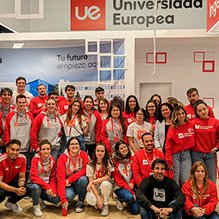
Come and see the campus
Get to know the facilities and discover why Universidad Europea is made for you.
Excellence endorsed by the best
Frequently Asked Questions
Why study International Business and International Relations?
The importance of having an international profile has become increasingly important over the past few years because of the multinational and multicultural way that society has evolved. The Double Degree in International Business + International Relations at Universidad Europea offers you the possibility to attain two undergraduate degrees in five years and allows you to develop deep knowledge in both business and international relations.
Our graduates develop a versatile profile that opens doors to careers across the globe in many sectors. If you choose to study here, you will be able to gain a real insight into the professional world thanks to our agreements with large organisations in which you can carry out work placements and internships.
Our study plan ensures that you hone your skills in both areas, with subjects including:
- Theory and Analysis of International Conflicts,
- Diplomatic and Consular Law,
- Defence and Security Alliances,
- International Negotiation and Diplomacy,
- World Economics
- Business Intelligence
- International Strategic Management
What is the difference between international business and International Relations?
While international business and international relations go hand-in-hand and, together, will help you achieve a profile to enjoy a successful career in whatever sector and wherever you choose around the world, there are some differences between the two. Let us explain:
- International relations is the study of how political, social, and religious forces interact with each other in largely peaceful ways (although conflict does sometimes arise). The curriculum is based on the liberal arts, history, geography and social sciences.
- International business, as the name suggests, focuses more on how global organisations trade goods and services. There is more of a focus on the management and finance side - with subjects typically including budgeting, production management, distribution and logistics, and competitor analysis.
What can you do with a Bachelor of international studies and business?
Graduating with a double degree in international business and international relations will open doors to a varied and global career.
Our graduates have gone on to become leaders in all sorts of industries and environments. This is just an example of what you can expect to do:
- Director or manager of any department of a company or multinational corporate organisation.
- Entrepreneur managing your own company or family business.
- International, commerce and economic relations expert at foreign trade organisations, firms and consulting agencies.
- Researcher at institutions or Think Tanks.
- At the World Bank, International Monetary Fund, Central European Bank or at private financial institutions.
- Diplomatic missions or consulates.
- Business development advisor or consultant.
Where can I study business and international relations?
Choosing Universidad Europea as the place to study business and international relations will help set you apart.
This is because we have a focus on experiential learning. So, as well as learning the theory behind business structures and international relations, you will be putting it into practice from day one thanks to agreements with companies across all sectors. You will have compulsory internship periods, as well as two international exchange opportunities - you can choose from more than 100 options in the US, Europe and Asia.
In addition, you will have access to a top class faculty made up of leading experts in banking, financial services, politics and international relations.

